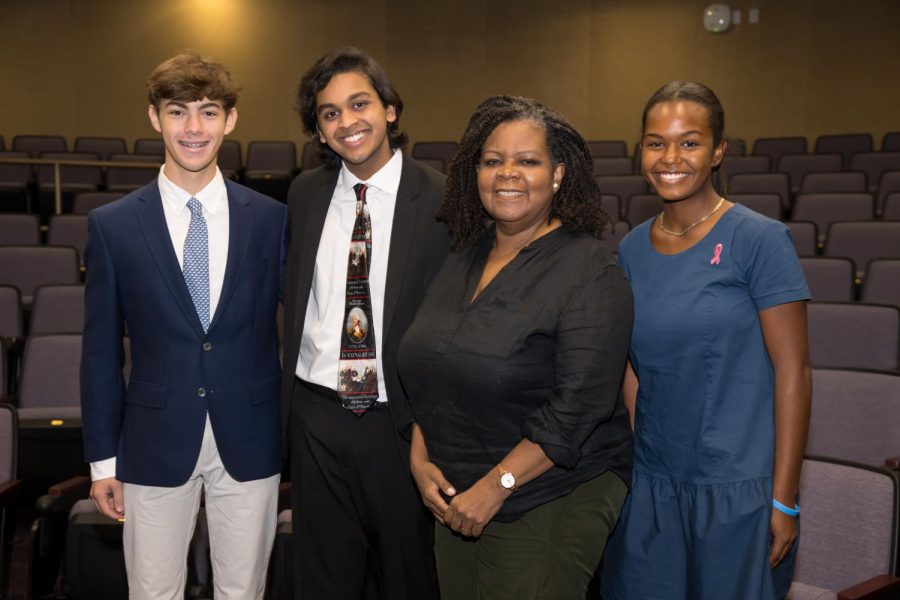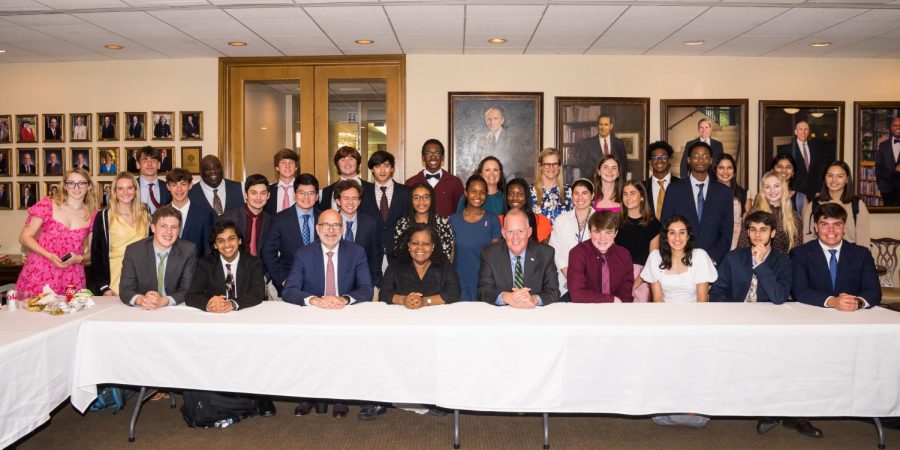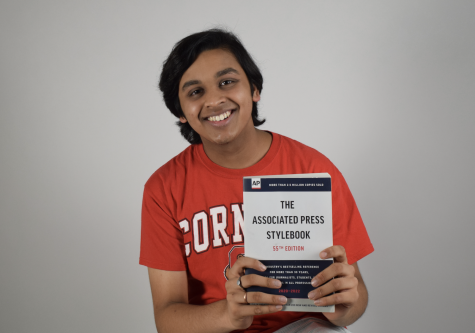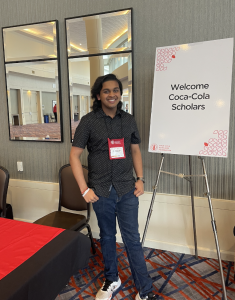Harvard professor and historian Annette Gordon-Reed visits campus
Juniors Henry Wizel, Eshaan Mani and Ava Winn pose with Prof. Annette Gordon-Reed before giving her a tour.
October 6, 2022
“What’s your story? What’s Kinkaid’s like?”
These were Harvard professor and historian Annette Gordon-Reed’s questions after wrapping up a session with first period AP U.S. History, Civil Rights and the Law and economics classes.
Smiling, Dr. Gordon-Reed scanned the amphitheater full of eager juniors and seniors from her wooden chair, waiting for a response.
Gordon-Reed is the author of several books including “On Juneteenth” and “The Hemingses of Monticello.”
Gordon-Reed was visiting Kinkaid as a part of the Barry J. Moss Distinguished Speaker Series, established to honor a former debate coach and help educate students in civil discourse in a democracy.
The first Black person to win the Pulitzer Prize for History and a MacArthur Genius, she addressed the community at a gathering on Sep. 28, in history classes and in assembly on Sep. 29.
At assembly, she laughed as she described her first encounter with Kinkaid students when she was in high school in Conroe.
“It was my first debate tournament, and I was definitely not prepared,” she said. “My team went up against this team from Kinkaid, and they wiped the floor with us. So I’ve always had this sense of admiration and slight intimidation when it comes to this school.”
She spoke about the journey behind writing her books and how she got to where she is today.
Gordon-Reed reassured students that they could find their passion at any age and stage; they would know they had found their calling if they felt joy and felt seen. She started her career as a lawyer, partly because she was interested in it and partly because she was attracted to the security of the job.
She had stopped enjoying the slog after a while and said the last straw was when one of her colleagues who she had been working closely with, “pulling all-nighter after all-nighter with,” didn’t recognize her when they passed one another in the corridors of their office.
Gordon-Reed shifted to writing about history, joining the faculty at Harvard University and Harvard Law School.
“I hated writing for the law review, so I decided I’d just go ahead and research something I found interesting: the history of the African-American community and how it connected to the building of the nation, starting with Sally Hemings and Thomas Jefferson,” she said.
Hemings was Jefferson’s slave, she explained, but she also had a child with him.
“The most important part of writing about history is being unbiased,” she said. “It takes commitment. It’s not easy to sift through all those documents, all that language, and keep yourself in check.”
During a lunch event with handpicked juniors and seniors, Gordon-Reed reminisced about her childhood, which she describes at length in “On Juneteenth,” and how it shaped her view of the world and interest in history. She fondly remembered her family, most significantly her parents who pushed her toward integrating the local school and understanding the importance of community.
As a child, she said she enjoyed playing with her friends.
“And frankly, being bored helps when you’re a kid,” Gordon-Reed added. “It’s nice because it gives you time to think. I was on the quiet side as a kid — I mean, I had friends, I don’t mean to sound pitiful — but I liked having some time for reading. That, I think, shaped my mind to be a good historian.”
Charlie Schmidt, a junior, posed questions to Gordon-Reed during his class session and the lunch event.
“She’s great,” he said. “It’s super rare to get the opportunity to speak to someone with her background and her knowledge of history, and as someone interested in U.S. History. I’m glad I could make the most of it.”














